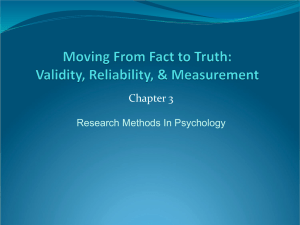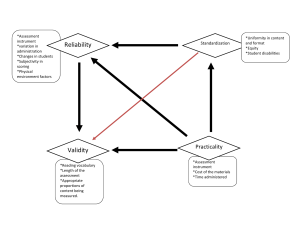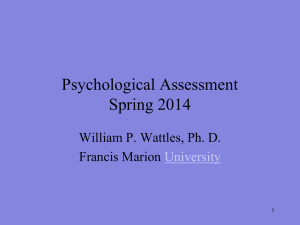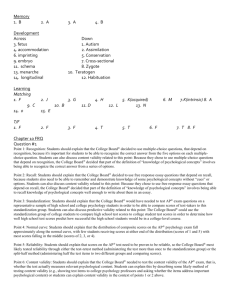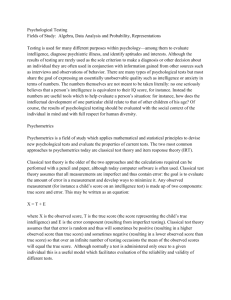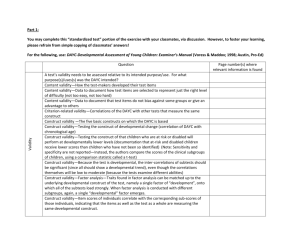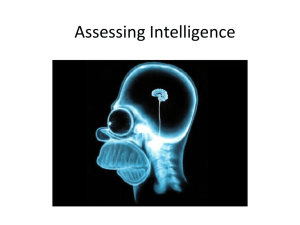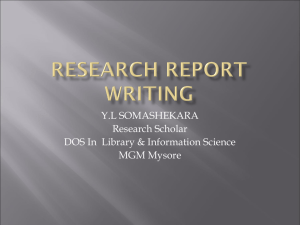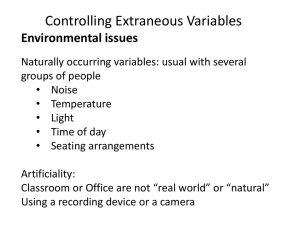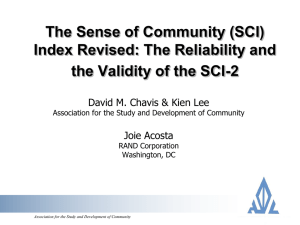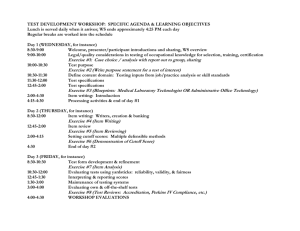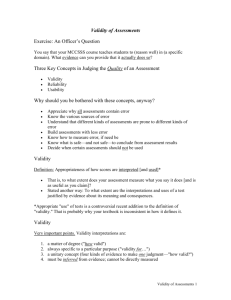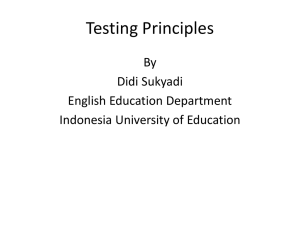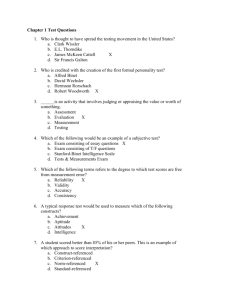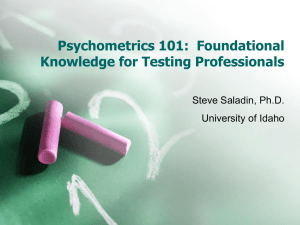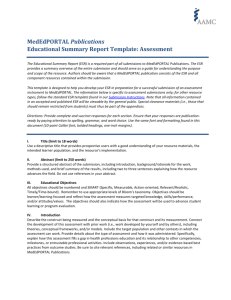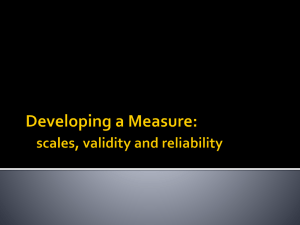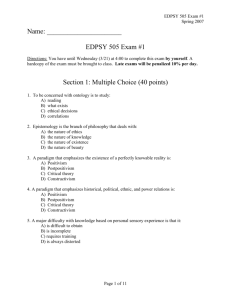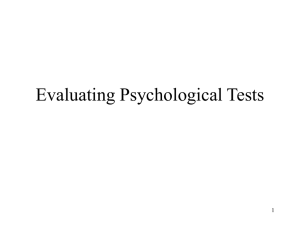13.1
advertisement
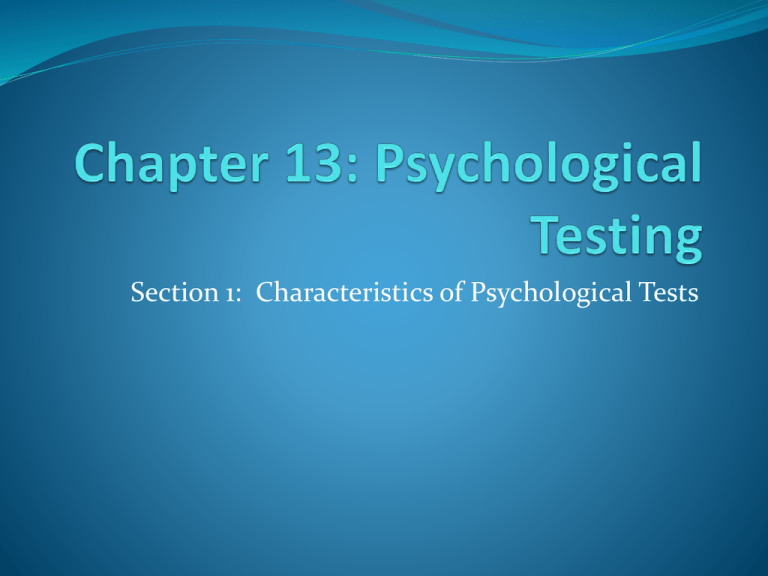
Section 1: Characteristics of Psychological Tests Psychological Tests Try to find out a great deal about a person in a short amount of time Predicting success in a career Finding out interests Revealing psychological problems Compare individuals to others DANGER!!!!! Merely tools to measure or predict behavior Fairness and usefulness of a test depends on 3 things Reliability, Validity, and Standardization Test Reliability Reliability- refers to a test’s consistency Will it yield the same results under a variety of circumstances Test-retest reliability- if person retakes the test or a similar test do they get approximately the same score Ex. ACT Interscorer reliability- will a test yield the same results when scored at different times by different people Ex. Writing OGT Split-half reliability- randomly divide test in half, are the two scores the same Ex. My tests Test Validity Validity- the ability of a test to measure what it is intended to measure Ex. Spanish test will not measure engineering ability Main method for measuring validity is to find out how well it predicts performance- predictive validity Ex. Do student who do well on the ACT do well in college? Standardization Standardization refers to 2 things 1. Tests must be administered and scored the same way every time 2. must establish the norm, or average score, made by a large group of people Establishing norms Raw score can be decieving Ex. Is a 60% good on a test Percentile system- ranking of test scores that indicates the ratio of scores lower and higher than a given score In order to make comparisons, the test is first given to a large representative sample of the group to be measured Ex. Juniors for the ACT Norms- standard of comparison for test results developed by giving the test to large, well-defined groups of people Norms refer only to what has been found to be average for a particular group
